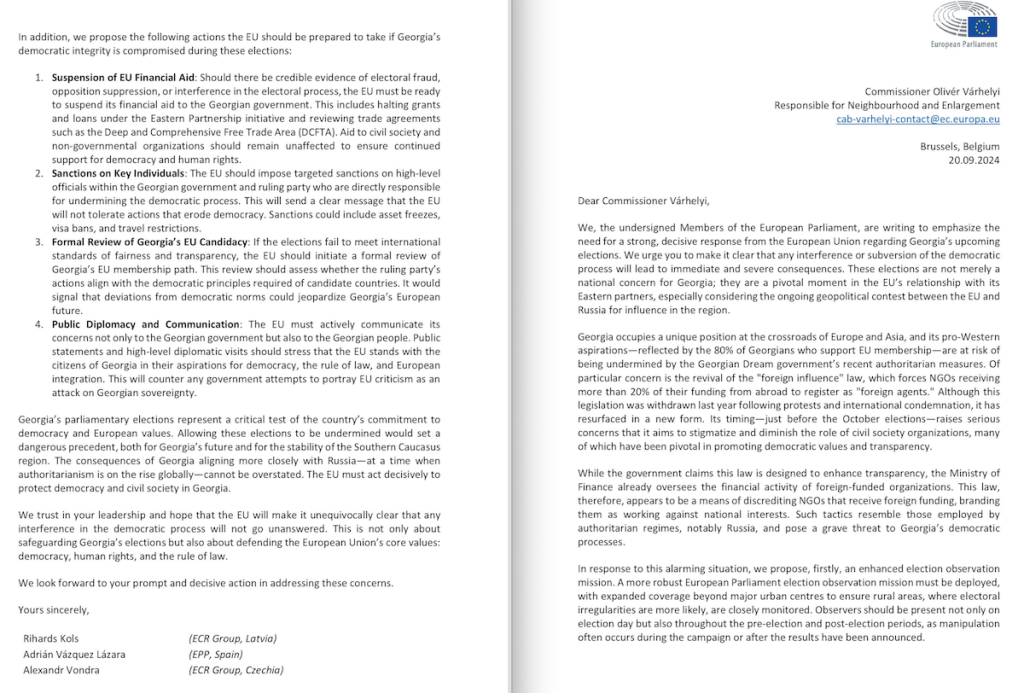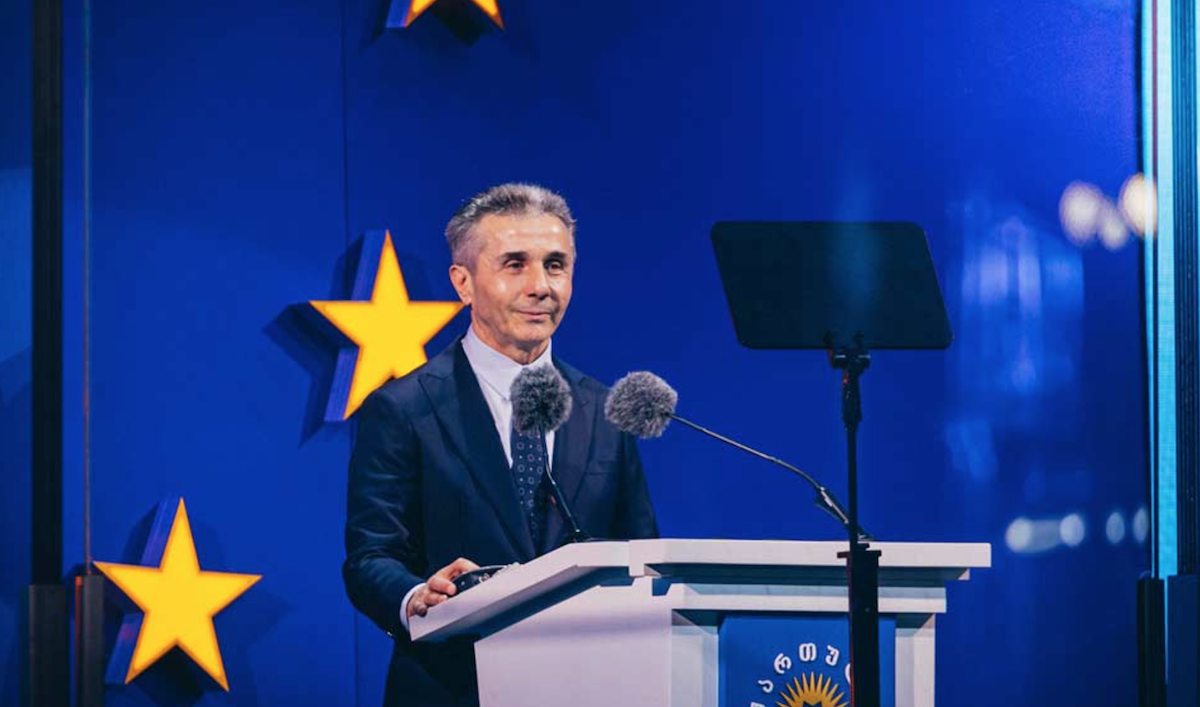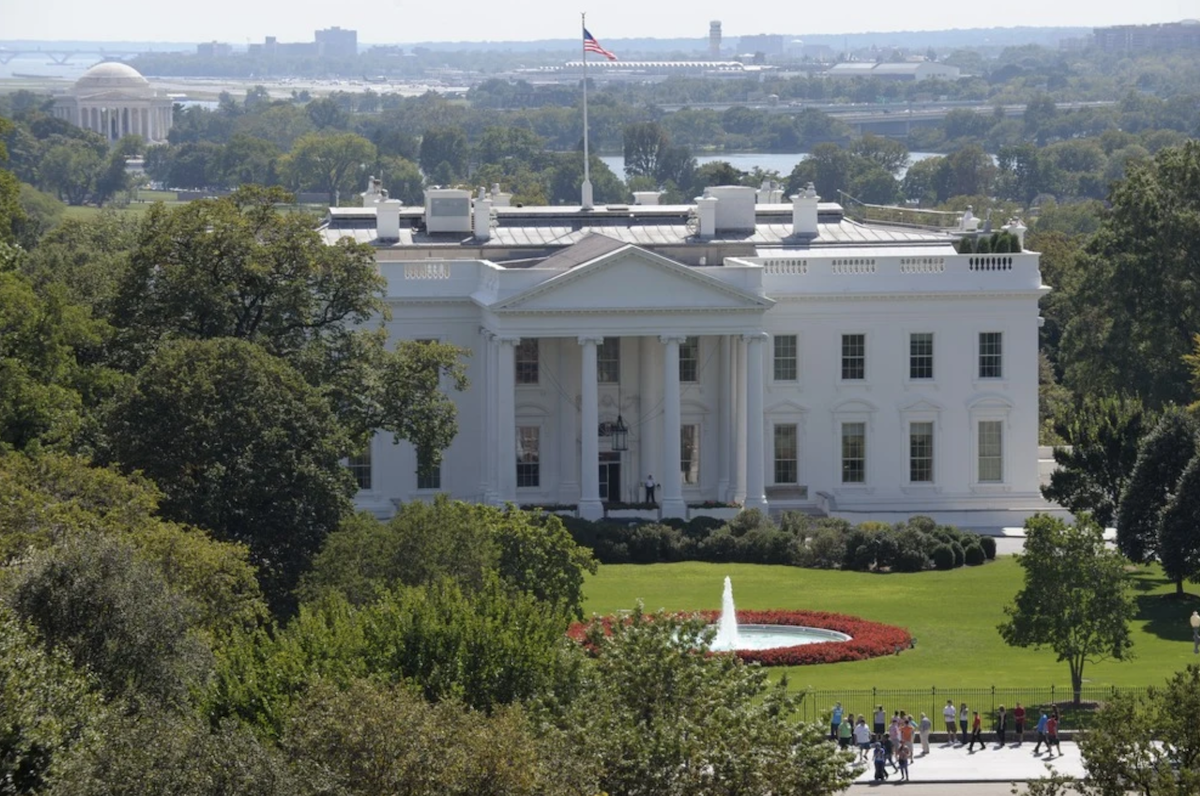Thirty EU Parliament members urge "decisive action" from the EU if Georgia's elections are undemocratic
European Parliamentarians’ letter on Georgia elections
30 Members of the European Parliament sent an open letter to EU Commissioner Olivér Várhelyi, calling on the European Union to issue a decisive statement regarding Georgia’s upcoming parliamentary elections on October 26.
The joint letter was shared on X by MEP Richard Coles.
“These elections are not merely a national concern for Georgia; they are a pivotal moment in the EU’s relationship with its Eastern partners, especially considering the ongoing geopolitical contest between the EU and Russia for influence in the region […] A more robust European Parliament election observation mission must be deployed, with expanded coverage beyond major urban centres to ensure rural areas, where electoral irregularities are more likely, are closely monitored,” – the letter states.
European parliamentarians express concern over “the revival of the “foreign influence” law, that appears to be a means of discrediting NGOs that receive foreign funding, branding them as working against national interests.“
What the European Parliamentarians’ statement says:
MEPs propose a four-point action plan for the European Union to implement if the elections in Georgia are undemocratic:
● Suspension of EU Financial Aid: Should there be credible evidence of electoral fraud, opposition suppression, or interference in the electoral process, the EU must be ready to suspend its financial aid to the Georgian government. This includes halting grants and loans under the Eastern Partnership initiative and reviewing trade agreements such as the Deep and Comprehensive Free Trade Area (DCFTA). Aid to civil society and non-governmental organizations should remain unaffected to ensure continued support for democracy and human rights.
● Sanctions on Key Individuals: The EU should impose targeted sanctions on high-level officials within the Georgian government and ruling party who are directly responsible for undermining the democratic process. This will send a clear message that the EU will not tolerate actions that erode democracy. Sanctions could include asset freezes, visa bans, and travel restrictions.
● Formal Review of Georgia’s EU Candidacy: If the elections fail to meet international standards of fairness and transparency, the EU should initiate a formal review of Georgia’s EU membership path. This review should assess whether the ruling party’s actions align with the democratic principles required of candidate countries. It would signal that deviations from democratic norms could jeopardize Georgia’s European future.
● Public Diplomacy and Communication: The EU must actively communicate its concerns not only to the Georgian government but also to the Georgian people. Public statements and high-level diplomatic visits should stress that the EU stands with the citizens of Georgia in their aspirations for democracy, the rule of law, and European integration. This will counter any government attempts to portray EU criticism as an attack on Georgian sovereignty.
“While the government claims this law is designed to enhance transparency, the Ministry of Finance already oversees the financial activity of foreign-funded organizations. Such tactics resemble those employed by authoritarian regimes, notably Russia, and pose a grave threat to Georgia’s democratic processes,” – the letter states.

On September 20, the EU Ambassador to Georgia, Paweł Herczyński, expressed hope that Georgia would not face a scenario similar to Belarus, whose elections were not recognized by the European Union. He said, “That is the worst-case scenario, and I hope it won’t happen in Georgia.“
Paweł Herczyński warned that the EU is closely monitoring developments in Georgia and is prepared to respond. According to him, “All options are being considered, including the temporary suspension of the visa-free regime.“
“We hope that the election campaign in Georgia will be peaceful and without violence, and that the elections will be free and fair. That’s what we want to see. But if the elections are not free and fair, we will have to take action,” Herczyński said.




















